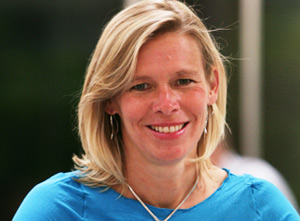For the next two days I’ll be reporting from Vancouver, British Columbia, where it’s hard to walk two blocks without running into a construction project related to the 2010 Olympic and Paralympic Winter Games. Eleven months from the opening ceremonies, Olympics buzz is fairly palpable, with games-related ads on the airwaves, heaps of Olympics gear for sale in souvenir shops, and construction cranes dotting the skyline.
The city gets a chance to highlight its preparations this week at the World Conference on Sport and the Environment (you know it’s classy because they say sport and not sports), which will explore the roles athletics can play in addressing climate change and creating livable environments. It brings together Olympic medalists, pro and amateur sports organizers, and reps from the Olympics’ heavyweight lineup of corporate sponsors. The Prince of Monaco will drop in to speak, as will leaders from the International Olympic Committee and the UN Environment Programme, the two sponsoring organizations.
There should be a good dose of overblown talk about “How Sports will Save the Earth,” and I’ll keep a running count of the use of the word “harness,” as in “harnessing the power of sport for change.” But I’m hopeful about hearing some genuinely innovative ideas too.
The conference also serves as a showcase for the environmental credentials of the Vancouver Organizing Committee, which has made sustainability a prominent part of its bid from the get-go. The 1,100-unit Olympic Village project is touted as a model of sustainable urban design, and new venues like the Richmond speed skating rink feature nifty energy and water-use elements.
Olympic preparations also include a high-impact rebuild of the Sea to Sky Highway connecting Vancouver to the ski resort Whistler, the site of many ski and sled competitions. B.C. has a feisty activist community that has already raised hell–and plans to raise more–about the highway, the loss of affordable housing, and other environmental and social impacts of the games.
I’ll be looking into as much of this as I navigate this fair city, try to think metrically, and learn to keep loonies straight from my twoonies. (That’s what they call money here, seriously) More to come …


